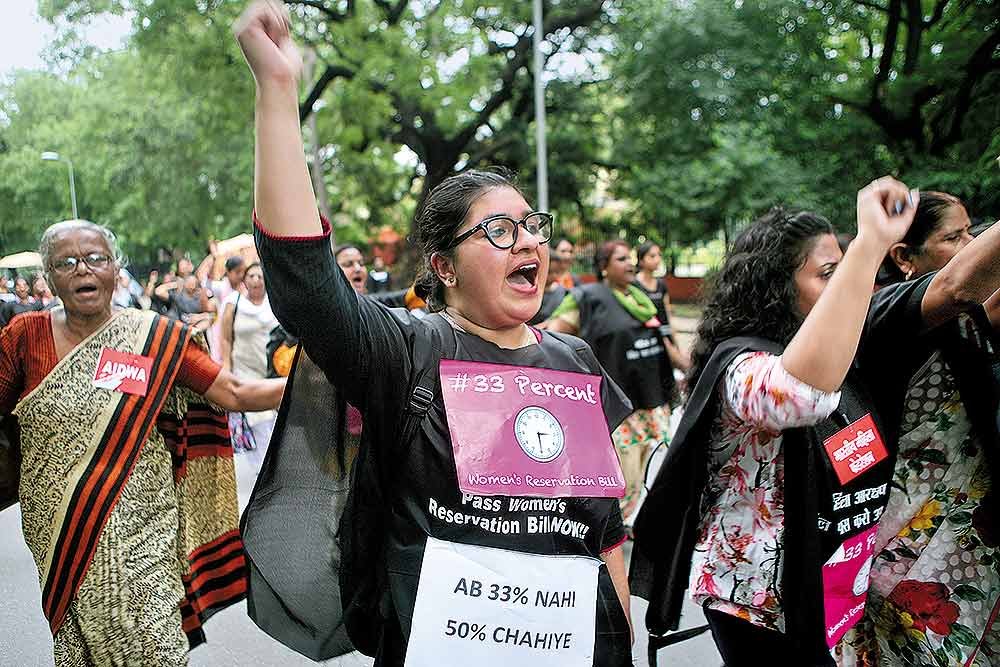Women in less developed parts of India are constantly looked down upon in terms of receiving an education, making their own decisions, and fighting against gender inequality. Regardless of the efforts made by women throughout the years, Indian women never have the same level of power or say that Indian men do, especially regarding decision-making for the country.
However, on September 21, 2023, India passed a law known as the “Women’s Reservation Bill”. This bill guaranteed that at least 33% of Indian women had seats reserved just for them in the state legislative assemblies and the Lok Sabha, the lower house of Parliament. When the bill passed, roughly 14% of Lok Sabha members were women. While it was indeed a historic high for India since gaining independence, it remains notably lower than the global average of 26.5% and the regional average for Central and Southern Asia, which was around 19%. Susan Ferguson, the India Country Representative for UN Women, highlighted that historically when women reach a substantial 30 percent representation in Parliament, it often leads to positive developments in women’s empowerment.
The implementation of this law is planned to occur after the publication of India’s upcoming census, although the specific date for this event is yet to be confirmed. Once enforced, the law will be in effect for 15 years. Though this legal change will not influence the composition of seats in the Rajya Sabha, the upper house of Parliament, where women currently account for only 13% of the members, this bill is set to initiate a lot of change within the country itself. Women will finally have a larger and more impactful say in decisions made for the country as a whole and specific decisions, bills, or laws introduced regarding the women themselves.
Rahul Gandhi, a prominent figure within the opposition Congress party, claimed that the new legislation could and should be implemented as soon as possible, as he believes that women deserve this privilege after being treated unfairly for so long. He accused the Modi government of using it as a diversionary tactic and conveyed to the press, “This isn’t a complicated issue.” Sonia Gandhi, also a member of the Congress party and coincidentally Rahul’s mother, expressed her exasperation during the parliamentary discussion. She highlighted that Indian women have long been awaiting this opportunity and asked, “And now they’re being told to wait for even more years. How much longer?”
Mrs. Sonia Gandhi ignited a real question in Indian women throughout the country. Don’t women deserve to hold the same amount of power that a man does? The women of India are finally starting to make their mark, and this bill is the first step for women to gain more vocal and expressive freedom in India. If their voices are heard in a political and powerful position, they could change the course of laws they deem unfit for their benefit. The women of India will have more room at the table, and hopefully, with time, that room will become bigger and bigger.
Works Cited
2023, 4 October. “India Passes Law to Reserve Seats for Women Legislators.” UN Women – Headquarters, 4 Oct. 2023, www.unwomen.org/en/news-stories/feature-story/2023/10/india-passes-law-to-reserve-seats-for-women-legislators#:~:text=The%20new%20legislation%20requires%20that,President%20of%20India%20Droupadi%20Murmu.
“India’s Parliament Passes Law That Will Reserve a Third of Legislature Seats for Women from 2029.” ABC News, ABC News Network, abcnews.go.com/International/wireStory/indias-parliament-passes-law-reserve-33-legislature-seats-103401108. Accessed 7 Nov. 2023.
